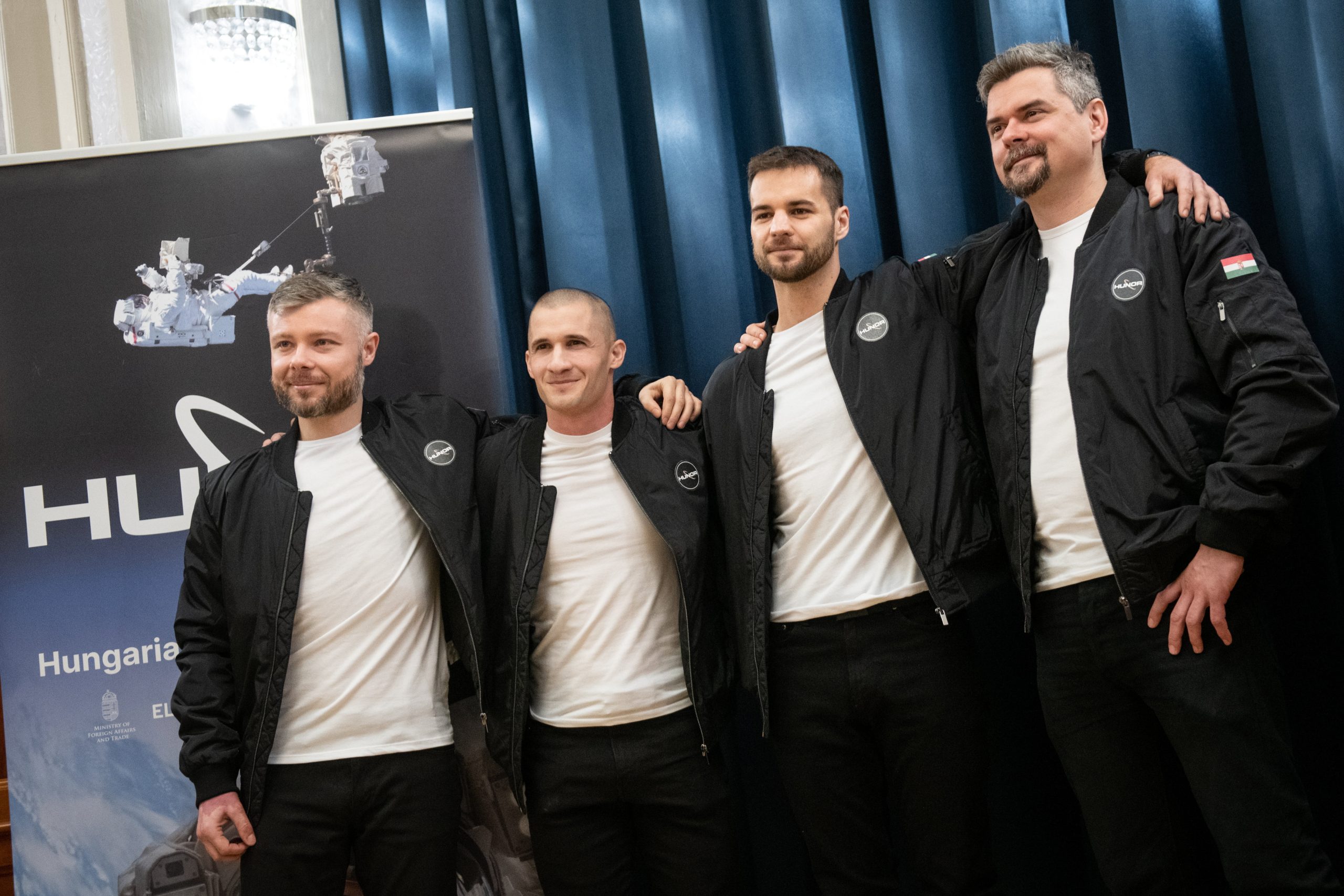
Another significant milestone for Hungarian scientists involved in the space spogramContinue reading

The HUNOR – Hungarian Astronaut Program will start the two-year training of Hungary’s newly established professional astronaut corps, consisting of one doctor and three engineers, the Ministry of Foreign Affairs and Trade told MTI on Tuesday. It has now also been revealed who exactly the four candidates are.
In her opening speech, Orsolya Ferencz, the ministerial commissioner for space research, stressed that Hungary is returning to space. Based on the strong catalyst effect of the space flight of Bertalan Farkas in 1980 (who was a guest at the press conference), the main objective of the current astronaut program to set Hungarian science and high-tech industry on a long and upward trajectory is well founded, she said, summing up the long-term ambitions of the project.
Gábor Magyari, the HUNOR Program’s technical manager for astronaut selection and training, said that
the 240 valid applications received were narrowed down to the four astronauts presented for training in accordance with the requirements of the European Space Agency, NASA, the International Space Station, and the program’s private industry partner Axiom Spaces.
The selection process, which lasted almost a year, tested the applicants’ mental performance, physical stamina, personality stability, scientific work ethic, and ability to work as a team as well as lead when needed.
The four shortlisted candidates are Gyula Cserényi, 33, a high-voltage electrical engineer; Tibor Kapu, 31, a space development engineer; Ádám Schlégl, a clinical orthopedic surgeon, and András Szakály, 40, an aeronautical design engineer.
András Szakály expressed his confidence in the potential of the HUNOR Program to ensure that the technological and scientific developments that are taking off will enable an increasing number of Hungarian engineers to find professional challenges in Hungary that match their skills. Ádám Schlégl looks forward to the scientific advances in telemedicine, and he expects to be able to do more for human lives than he has been able to do in surgeries every day.
Gyula Cserényi is facing the dangers of the space station with the same confidence as he has in the decision-making situations that his job has brought him in the past. Tibor Kapu said that they are determined to face the challenges of the next two years.
The HUNOR Hungarian Astronaut Program aims to launch a Hungarian research spacecraft to the International Space Station, where it will carry out scientific experiments, mainly of Hungarian development, for almost a month.
Of the four candidates, one will be chosen finally, who will go into space at the end of 2024, or at the beginning of 2025.
A training course will now begin for the candidates that is a basic part of training for all astronauts. They will learn all the competencies needed to master the elements of the Hunor program, depending on the schedule and the weather, and they should be able to finish by February of next year. They will then travel to Texas, where they will prepare for the mission at Axiom Space and NASA sites, learning the emergency protocols of the spacecraft carrying them, as well as the operations of the ISS modules where they will conduct experiments.
Featured photo via MTI/KKM